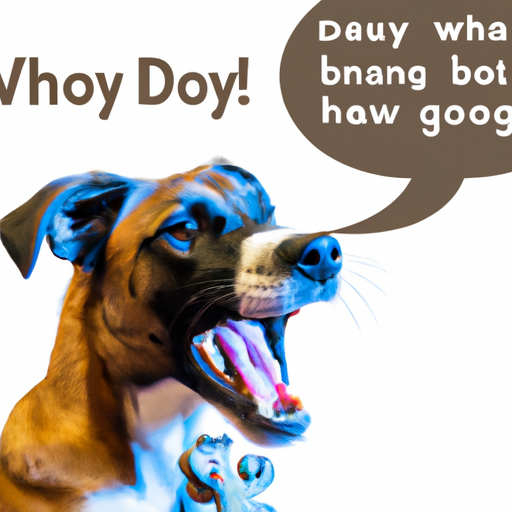Understanding Your Dog’s Behaviour
You might be aware that your canine friend uses different methods to communicate with you. One such method, which might initially seem alarming, is growling. However, not all growls are created equal, and it’s important to understand this form of communication.
When your dog growls while playing, it’s often a harmless part of their play behaviour. This can be compared to how children might make noises while playing and having fun. For dogs, growling is a natural method of communication, and during playtime, it’s typically a harmless way for them to express their excitement and enjoyment.
The Difference Between Aggressive and Playful Growling
It’s crucial to distinguish between growling that signifies aggression and growling that’s purely part of play. These are some key differences:
-
Tone: Aggressive growling tends to be low-pitched and guttural, while playful growling can be quite high-pitched.
-
Body Language: Aggressive dogs often display rigid body posture, while playful dogs have a relaxed, loose body posture and may exhibit a ‘play bow’ position.
| Aggressive Growling | Playful Growling |
|---|---|
| Low-pitched, guttural | High-pitched |
| Rigid body posture | Relaxed, ‘play bow’ posture |
How to Manage Your Dog’s Growling
As a caregiver, it’s your responsibility to ensure your dog’s growling remains playful and doesn’t escalate into aggression. Here are few ways:
- Monitor their play: Keep an eye on your dog when they’re playing, especially with other dogs.
- Know their limits: Some dogs may become more aggressive if they’re tired or overstimulated. Know when to give them a break.
- Teach them commands: Commands such as ‘quiet’ or ‘enough’ can be useful to control their behaviour.
What to Do If Your Dog’s Growling Becomes Aggressive
If your dog’s growling becomes aggressive, it’s important to address the problem promptly. You might want to:
- Seek professional help: A professional trainer or a behaviourist can provide necessary guidance.
- Reinforce positive behaviour: Reward your dog when they interact calmly and positively.
FAQ
Q: Is it normal for dogs to growl while playing?
A: Yes, dogs often growl during play as a way to express enjoyment and excitement.
Q: How can I tell if my dog’s growling is aggressive?
A: Aggressive growling is often lower in pitch and accompanied by rigid body posture.
Q: What should I do if my dog’s growling becomes aggressive?
A: You might want to consult a professional trainer or behaviourist for guidance.
Understanding the nuances of your dog’s growling can help you ensure a safe and enjoyable playtime for everyone involved. Remember, communication is key in any relationship, even with your four-legged friend!



